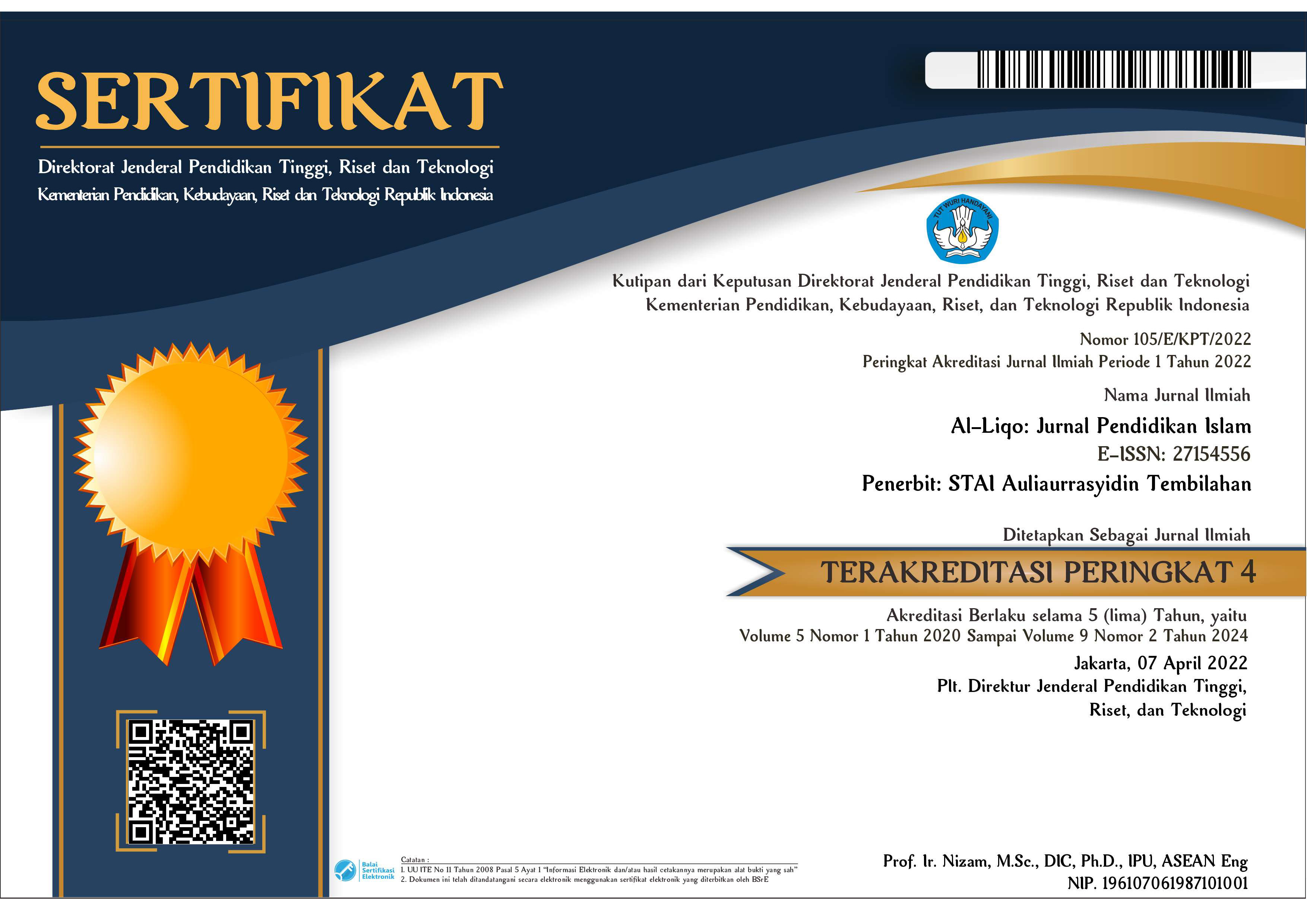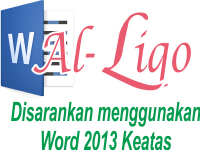Strategi Pendidikan Akhlak pada Fase Tamyiz
DOI:
https://doi.org/10.46963/alliqo.v8i2.809Keywords:
Moral Education, Strategy, TamyizAbstract
The research is based on various moral and moral problems among children, such as drug abuse, brawls, moral decadence, dating and so on. Moral education for children is carried out from an early age, so that when adults grow up, they understand morals to practice in their daily lives. The role of parents, especially mothers, has a large role in directing and educating their children, because mothers are the first school for their children. Especially in the era of digitalization, modern technology, the issue of morals and guidance has become very important and urgent to study and think about, because the facts show that technological advances have a negative impact on children's morals, as well as positive impacts. A child is like white paper without the slightest stain, so the role of mothers in coloring children is very large. The good or bad of a child's morals really depends on the role of mothers in moral education. The research aims to explore appropriate moral education strategies, especially in the tamyiz phase, which is based on the Quran and al-Hadith. The method used by library research is an analytical approach to texts whose sources are the Koran and al-Hadith and other sources. The results of the research are that there are two strategies for moral education, namely direct education including example, motivation, training, and indirect education, namely punishment, prohibition, and supervision.
Downloads
References
Anas Salahudin dan Irwanto Alkrienciehie, (2013), Pendidikan Karakter: Pendidikan Berbasis Agama dan Budaya Bangsa, Bandung: Pustaka Setia.
Annisa Maila Rahayu dkk, (2023), Pendidikan Akhlak Anak Fase Tamyiz Usia 7-10 Tahun, Jurnal Tawazun: Jurnal Pendidikan Islam, Vo. 16 No. 2.
Al-Qahtani, S. B. (2020). al-hadyu an-nabawi fi tarbiyatil aulad. mesir: dar alamiyah.
ambaryani, b. s. (2021). pembinaan akhlak pada anak remaja. surakarta: guepedia.
Hamdani. (2011). strategi belajar mengajar. bandung: pustaka setia.
Hamid, B. A. (2017). ilmu akhlak. bandung: pustaka setia.
Imam Suprayogo, (2016), membangun mental pejuang, (yogyakarta: yayasan wakaf buku indonesia.
Lailatul Mufarohah dkk, (2018), strategi pendidikan akhlak untuk anak usia dini, prosiding bimbingan konseling, universitas ibn kaldun bogor.
Moh. faishol khusni, (2018), fase perkembangan anak dan pola pembinaannya dalam perspektif islam, jurnal martabat, vol.2 no. 2, desember, tulungagung.
Muhammad haris, (2015), pendidikan islam dalam perspektif prof. h.m. arifin, jurnal ummul qura, vol. vi, no. 2, september. lamongan.
Muhibbnin syah, (2020), psikologi pendidikan dengan pendekatan baru, bandung: remaja rosdakarya.
Sari, B. (2021). pembinaan akhlak pada anak remaja. surakarta: quepedia.
Downloads
Published
Issue
Section
License
Copyright (c) 2023 Heriyanto Heriyanto, Abas Mansut Tamam, Imas Kania Rahman, Ahmad Sastra, Akhmad Alim

This work is licensed under a Creative Commons Attribution-ShareAlike 4.0 International License.
Authors who publish with this journal agree to the following terms:
1. Copyright on any article is retained by the author(s).
2. The author grants the journal, right of first publication with the work simultaneously licensed under a Creative Commons Attribution shareAlike 4.0 International License that allows others to share the work with an acknowledgment of the work’s authorship and initial publication in this journal.
3. Authors are able to enter into separate, additional contractual arrangements for the non-exclusive distribution of the journal’s published version of the work (e.g., post it to an institutional repository or publish it in a book), with an acknowledgment of its initial publication in this journal.
4. Authors are permitted and encouraged to post their work online (e.g., in institutional repositories or on their website) prior to and during the submission process, as it can lead to productive exchanges, as well as earlier and greater citation of published work.
5. The article and any associated published material is distributed under the Creative Commons Attribution-ShareAlike 4.0 International License







2.png)



